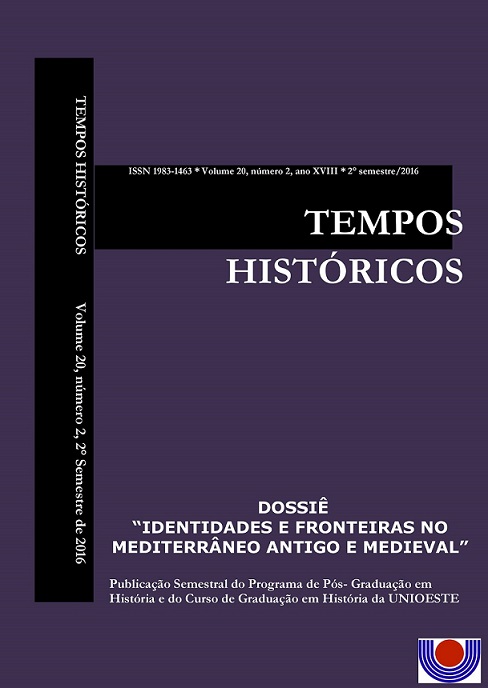O ENJEITADO NA SUA “QUALIDADE”: A EQUIDADE SOCIAL E OS EXPOSTOS NO RIO GRANDE DE SÃO PEDRO (SÉC. XVIII-XIX)
DOI:
https://doi.org/10.36449/rth.v20i2.15794Resumo
O presente artigo aborda a exposição de crianças, fenômeno amplamente praticado e tolerado em nosso passado colonial e imperial: trata-se do ato de abdicar da criação de um(a) filho(a) o abandonando em um lugar ermo ou na porta de uma casa. O espaço de nossa análise é o continente do Rio Grande de São Pedro, especificamente, a localidade de Porto Alegre, sede da província, e Rio Pardo, localizada a noroeste, fazendo fronteira com a banda oriental. A proposta é discutir a condição social do exposto a partir de sua classificação racial e posição na hierarquia social. Assim, a partir da cor ou da ausência dessa informação nas fontes produzidas durante o século XVIII até meados do XIX, procuramos problematizar a prerrogativa de que grande parte dos expostos eram brancos, bem como, na qualidade de expostos, negros e mestiços poderiam desordenar a equidade social, princípio jurídico do Antigo Regime. Para essa análise nos detemos no cruzamento nominativo de fontes eclesiásticas e administrativas como recurso metodológico, amparado pela Micro-História e a História Social.Downloads
Publicado
Como Citar
Edição
Seção
Licença
Aviso de Direito Autoral Creative Commons
Política para Periódicos de Acesso Livre
Autores que publicam nesta revista concordam com os seguintes termos:
1. Autores mantém os direitos autorais e concedem à revista o direito de primeira publicação, com o trabalho simultaneamente licenciado sob a Licença Creative Commons Attribution que permite o compartilhamento do trabalho com reconhecimento da autoria e publicação inicial nesta revista.2. Autores têm autorização para assumir contratos adicionais separadamente, para distribuição não-exclusiva da versão do trabalho publicada nesta revista (ex.: publicar em repositório institucional ou como capítulo de livro), com reconhecimento de autoria e publicação inicial nesta revista.
3. Autores têm permissão e são estimulados a publicar e distribuir seu trabalho online (ex.: em repositórios institucionais ou na sua página pessoal) a qualquer ponto antes ou durante o processo editorial, já que isso pode gerar alterações produtivas, bem como aumentar o impacto e a citação do trabalho publicado (Veja O Efeito do Acesso Livre).
Licença Creative Commons
Esta obra está licenciada com uma Licença Creative Commons Atribuição-NãoComercial-CompartilhaIgual 4.0 Internacional, o que permite compartilhar, copiar, distribuir, exibir, reproduzir, a totalidade ou partes desde que não tenha objetivo comercial e sejam citados os autores e a fonte.


